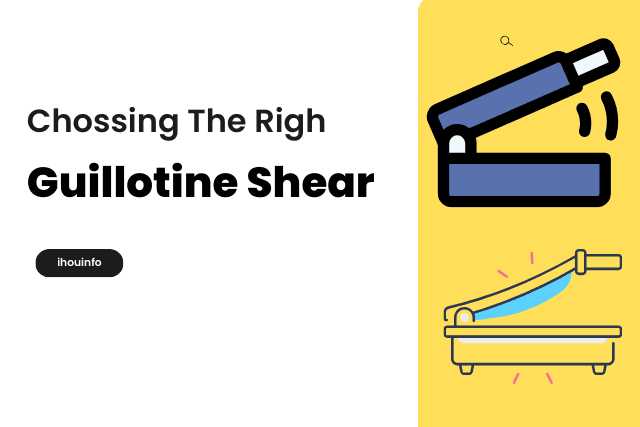
Buying your first home is an exciting milestone, but navigating the mortgage process can feel overwhelming. With so many loan options available, it’s important to understand which ones are best suited for first-time buyers. Each loan type has different credit score requirements, down payment options, and benefits that can make homeownership more accessible.
For first-time buyers, choosing the right mortgage depends on financial circumstances, long-term goals, and eligibility for specific loan programs. Learning about the most common loan options can help you make an informed decision and find the best first-time homebuyer loans for your needs.
What to Consider When Choosing a Loan
Before deciding on a mortgage, there are a few key factors to consider. Understanding these elements can help you determine which loan type is the best fit for your situation.
Credit Score Requirements
Lenders evaluate your credit score to determine loan eligibility and interest rates. Some loan programs have flexible credit requirements, while others require a higher score for approval.
Down Payment Options
The amount you need for a down payment depends on the loan type. Some loans require as little as 3% down, while others may not require a down payment at all.
Interest Rates
Your interest rate affects your monthly mortgage payment and the total cost of your loan over time. Certain loan programs offer competitive rates, especially for first-time buyers.
Loan Term
Mortgages typically come with 15-year or 30-year repayment terms. A shorter loan term means higher monthly payments but lower overall interest costs.
Eligibility for Assistance Programs
Many states and lenders offer financial assistance programs that provide down payment help or special loan terms for first-time buyers.
Once you understand these factors, you can explore the most common mortgage options available.
Best Loan Options for First-Time Homebuyers
Several loan programs are designed to help first-time buyers purchase a home. Each option has unique benefits and requirements.
Conventional Loans
Conventional loans are not backed by the government and are a popular choice for homebuyers with strong credit and stable income.
- Minimum credit score: 620
- Down payment: As low as 3% for first-time buyers
- Mortgage insurance: Required for down payments under 20%
- Best for: Buyers with good credit who can afford a moderate down payment
While conventional loans offer flexibility, they may not be the best option for those with lower credit scores or limited savings.
FHA Loans
Federal Housing Administration (FHA) loans are one of the most common first-time homebuyer loans because they have lower credit and down payment requirements.
- Minimum credit score: 500 with 10% down, or 580 with 3.5% down
- Down payment assistance: Available through some state programs
- Mortgage insurance: Required for the life of the loan
- Best for: Buyers with lower credit scores or limited savings
FHA loans provide a great path to homeownership for buyers who may not qualify for conventional financing.
VA Loans
Veterans Affairs (VA) loans are an excellent option for eligible military service members, veterans, and their spouses.
- Minimum credit score: No official requirement, but most lenders prefer 620 or higher
- Down payment: None required
- Mortgage insurance: Not required
- Best for: Active-duty military, veterans, and eligible spouses
VA loans provide significant financial benefits, making homeownership more accessible for those who qualify.
USDA Loans
The U.S. Department of Agriculture (USDA) offers loans for buyers purchasing homes in eligible rural areas.
- Minimum credit score: 640 recommended
- Down payment: None required
- Mortgage insurance: Required but lower than FHA loans
- Best for: Buyers in designated rural areas with low to moderate incomes
If you qualify for a USDA loan, it can be an affordable way to buy a home without needing a large down payment.
State and Local First-Time Homebuyer Programs
Many states and local governments offer assistance programs that help first-time buyers with down payments, closing costs, and interest rates.
- Eligibility: Varies by state and program
- Benefits: Lower interest rates, down payment assistance, and reduced closing costs
- Best for: Buyers who need financial assistance or lower upfront costs
Checking with local housing authorities or lenders can help you find programs available in your area.
Comparing Loan Types: Which One is Best?
The best mortgage option depends on your financial situation and long-term goals. Here’s a quick comparison of the most common loans:
| Loan Type | Credit Score Requirement | Down Payment | Mortgage Insurance | Best For |
| Conventional | 620+ | 3% or more | Required under 20% down | Buyers with good credit and stable income |
| FHA | 500+ | 3.5%-10% | Required for the life of the loan | Buyers with lower credit scores |
| VA | 620+ (varies by lender) | None | Not required | Military members and veterans |
| USDA | 640+ | None | Required but lower than FHA | Buyers in rural areas |
How to Improve Your Mortgage Eligibility
If you’re not quite ready to qualify for a mortgage, there are steps you can take to improve your chances.
Build Your Credit Score
- Pay all bills on time to establish a positive payment history.
- Reduce outstanding debt to lower your credit utilization.
- Avoid opening new credit accounts before applying for a mortgage.
Save for a Down Payment
- Set a savings goal based on the loan program you plan to apply for.
- Look for state or local down payment assistance programs.
- Reduce unnecessary expenses to increase your savings.
Get Pre-Approved
Getting pre-approved for a mortgage can help you understand how much you can afford and make you a more competitive buyer when house hunting.
Common Mistakes First-Time Buyers Should Avoid
Navigating the homebuying process can be complex, and many first-time buyers make common mistakes that could impact their ability to secure a loan.
Not Checking Credit Reports Early
It’s important to review your credit report well before applying for a mortgage to catch any errors or areas that need improvement.
Ignoring Additional Homeownership Costs
Beyond the mortgage payment, consider property taxes, homeowners insurance, maintenance, and potential HOA fees.
Making Large Purchases Before Closing
Avoid taking on new debt or making large purchases on credit before your loan is finalized, as it could impact your approval.
Final Thoughts
Choosing the right mortgage is an essential step for any first-time homebuyer. The best loan for you depends on your credit score, financial situation, and homeownership goals. First-time homebuyer loans such as FHA, VA, and USDA loans offer accessible options for those who may not qualify for conventional financing.
Taking time to understand loan requirements, improve your credit, and explore available assistance programs can help you secure the best mortgage option. By preparing in advance, you’ll be in a stronger position to purchase your first home with confidence.



